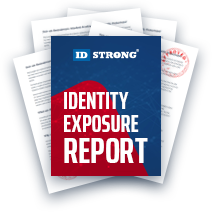What is Investment Fraud and How to Detect Investment Scams
Table of Contents
- By David Lukic
- Published: Dec 14, 2020
- Last Updated: Mar 18, 2022
Investment scams are another effective way criminals separate U.S. citizens from their life-long savings. Sometimes the scammer calls out of the blue; other times, you might receive an enticing email or visit a website after seeing an ad that you just can’t resist reading about. Regardless of how they get their foot in the door, once you hand over any money, you’re a victim of investment fraud, and they’re gone.
How Do Investment Scams Work?
Investment scams work because they promise huge profits with very little to no risk. They substantiate this information using fancy websites, charts, graphs, and what appears to be inside information. However, there is a hint of secrecy surrounding the deal and an urgency to act fast. Otherwise, you will lose this great opportunity. Those are glaring, red warning signs that something is wrong.
Sometimes, scammers prey on people who have recently lost money in the stock market. Their angle is to give you hope that you can recoup your losses quickly and make even more money in one fell swoop. Usually, the person who approaches you is nice, professional and seems like they are doing a good deed by including you, but all they are really doing is picking your pocket.
Types of Investment Frauds
There are many types of investment scams. Here are a few common ones to watch out for:
Pump and Dump Investment Fraud
The pump and dump scam is carried out by a number of scammers or even semi-legitimate stockbrokers. These groups contact customers to invest in a low-cost stock that they “know is going to peak soon.”
The share demand increases as more investors buy the stock based on false information. This inflated interest drives up the stock’s price and tricks even more people into buying in. The problem is that this artificially created peak can’t last forever.
The fraudsters sell their stocks at the peak, which triggers a sharp decline in its price. Stocks often fall below their original value, which leaves victims with significant losses.
Advance Fee Scam
The advance-fee scam, also known as the upfront fee scam, relies on the desperation of investors who have realized serious losses. The fraudster promises huge ROIs on small investments, but the catch is you have to pay the refundable fee, deposit, or taxes in advance.
One of the most famous versions of advance fee fraud is the “Nigerian Prince” scam. This strategy is often laughed at, but it’s been historically successful when targeting less tech-literate people. Attackers impersonate high-ranking officials seeking to transfer funds out of Nigerian accounts but require money for bribes and transfer fees first.
Victims hand over their bank details and personal information to wire money to the scammer. This information may also be used in other cyber-attacks or sold on the dark web.
Another form of advance fee scam is debt elimination fraud. People deep in debt are more likely to cling to any chance at reconciliation, no matter how small. Scammers take an upfront fee or membership payment while promising to settle the victim’s debts. This version of fraud is particularly heinous since it targets people in dangerous situations and pushes them even deeper into debt.
Boiler Room Scam
The boiler room scam is set up to resemble a legitimate investment firm with computers, phones, stock tickers, and a professional website. Fraudsters cold-call potential investors from this base while leveraging the high-pressure, and often loud, environment. Many of these groups claim to be affiliated with investment advisors or reputable firms.
Boiler Room scams are characterized by forcing immediate investments, dodging questions about the firm, and unsubstantiated “insider” information. After bilking as many people as they can out of their hard-earned money, they close up shop and leave a vacant space where your savings used to be.
Promissory Note Fraud
Promissory notes are legally binding documents that outline the loan repayment rules. They are written evidence of a debt or loan agreement between two parties. Criminals use promissory notes to promise a return.
Even if the investment opportunity fails, the victim believes that the promissory note can legally guarantee payment. However, the promissory notes offered by scammers are backed by non-existent assets or fraudulent business ventures. The fraudsters pocket the victim’s investments and leave them with worthless promises.
To create an appearance of legitimacy, the fraudsters may provide false documentation, such as account statements or even counterfeit company seals. They may also boost their credibility by attaching themselves to big-name firms.
Ponzi & Pyramid Investment Fraud Schemes
Ponzi and pyramid schemes target groups of people such as friends, families, or others with a common interest. Rather than generating legitimate earnings, criminals lure a few in and then use the victims to spread the word to their friends, family, co-workers, and church members.
These scammers have you pay upfront fees to the investors. Initially, early investors will see profits, but those are paid from the fees from lower-level investors. This cycle continues until the scheme is discovered or can no longer support itself.
The interconnectedness of social media has made it even easier to spread a pyramid scheme. Con artists can build their credibility within an online forum or social media group before pushing their agenda. Fooled investors also have a much larger reach than they used to. Old friends from high school, college roommates, or distant family friends become fair game.
Additionally, hackers can steal people’s accounts and message the victim’s entire friends list in minutes.
To create an image of success, pyramid scheme operators make fake or altered financial statements to trick potential victims into buying in. The heads discourage lower-level investors from cashing out and recommend funneling their earnings back into the scheme. To this end, there are often penalties or delays when cashing out.
Initial Coin Offering Scams and Cryptocurrency Fraud
“Crypto” broadly refers to virtual currencies that shook the world in 2017, spearheaded by Bitcoin. Crypto transactions are verified and protected through cryptography and are not managed by a single authority.
The explosion of stories covering overnight millionaires made cryptocurrencies famous, and most people at least dipped a toe into the trend. However, a significant number of people also lost out after betting it all on the hype.
Initial Coin Offering (ICO) scams are a popular form of cryptocurrency fraud. New cryptocurrencies pop up all the time, and not all of them can be winners. People have proven their willingness to pay into speculative offerings to cash out. Scammers target overeager investors with weak ICOs while confusing them with complicated terminology.
Before investing in an ICO, you must research the developers behind it. Many scammers go so far as to create fake websites and founder biographies to trick their victims. Do a deep dive into any administration before committing your money.
Offshore Investing Investment Fraud
Offshore investment fraud takes advantage of other countries' complex and unfamiliar financial systems to trick victims with ridiculous promises. Scammers offer huge returns on overseas investments; as a bonus, you pay less in taxes.
Criminals spreading offshore investment scams claim exclusive access to foreign investors that can't be found within the US. They'll make promises of asset protection or trade exemptions to appear more enticing.
Once they are done with you, however, you are out the money, which was lost in a foreign country and impossible to retrieve. In some cases, you’ll send money to companies that don’t even exist, which makes it impossible to track down your funds. The biggest slap in the face is that you now owe the U.S. government penalties and fees for trying to avoid paying taxes.
Pension Fraud
Dozens of scams target the elderly and people with a pension. Scammers pose as legitimate financial advisors or pension providers while giving misleading advice. They offer to manage your life insurance policy or get your pension funds early through a low-cost loan. But be careful of going down that road, you could lose it all.
Pension fraudsters typically try to deceive individuals into making bad investments with their pension funds, but identity theft is another tactic. Criminals steal your personal information from a phishing attack or data breach and use it to access your pension account.
How to Avoid Investment Fraud?
Often the best way to stay safe is to use a good dose of common sense. Some ways to protect yourself from investment scams are:
- Always verify the information given. Check the company out thoroughly; don’t trust what some stranger tells you. Make sure the broker is registered to actually sell securities or commodities.
- Be careful of any unsolicited calls, emails, or mailings that promise significant returns quickly with a low risk (there is always a risk). That is not how investing works.
- Never make snap decisions. If someone is pressuring you with terminology like “have to act fast,” or “don’t want to miss this opportunity,” it’s probably a scam.
- Watch out for commodities, deals, and offshore offerings.
Where to Report Investment Fraud ?
Report any incident involving a licensed financial advisor or brokerage firm to their regulatory body. Collect all communications you had with the fraudsters as evidence to support your claim. It’s not certain that anything will come of it, but they can conduct an internal investigation and take appropriate disciplinary measures against the involved individuals.
If you suspect or have fallen victim to investment fraud, it is crucial to report the fraud promptly to the appropriate authorities. Acting quickly will protect yourself and others from further harm. Here are a few numbers to report investment fraud:
- The U.S. Securities and Exchange Commission - 800- 732-0330.
- The North American Securities Administrators Association - 202-737-0900.
- The National Futures Association (for investments in commodities) - 800-621-3570 (in Illinois, call 312-781-1467)






















































































































